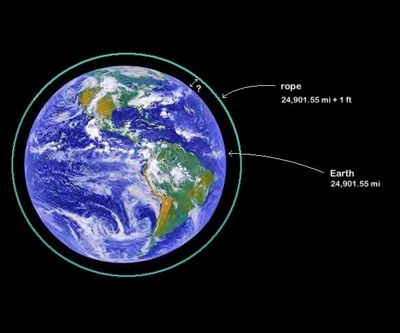While I was writing the previous post, the solution really got me thinking about what math really is when it comes down to our basic instincts, inspiring this post.
Some people think that math is something created by humans, and that there is no universal defined math but it is simply a man-made creation. And the other side takes the opinion that we are simply discovering new parts of something defined, as if created by god or part of the way the universe exists, somewhat like how the force of gravity appears to be ingrained in how the universe is held together and how life is possible.
I personally can’t take a side on this because I come somewhere in the middle, but to me it’s important to understand that math is created (or discovered) by human intuition. Everything seems to come down to the way we see the world, shaped by nearly everything in our past which can change that instinct. I thought it would be worthwhile to just skim through a few interesting facts (other than the infamous Monty Hall Problem!) which can show us that our intuition when it comes to applying math can often be completely skewed.
If we wrap a wire around the earth’s circumference and then add 2 meters to its length, how far off the ground can we expect it to be? My intuition tells me a negligible amount, but a simple calculation gives almost a third of a meter!

Also, we have a jellyfish that weighs 100 pounds with 99% water by weight, and we leave it out to evaporate until it’s 98% water by weight (let’s say that it’s already dead to keep our conscience clean). What’s the new weight? It’s interestingly false to follow basic intuition here, and upon thinking we find that the non-water part is 1 pound, and therefore the answer is 50 pounds.

Mathematics is about intuition, and that’s what makes it interesting, but sometimes I guess our intuitions can lead us into false visualizations. Listening to intuition is something I think we should be slightly more wary of, at least in applying math to the world.